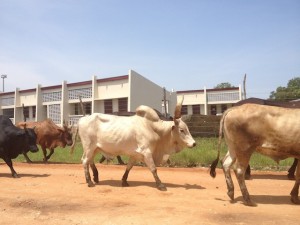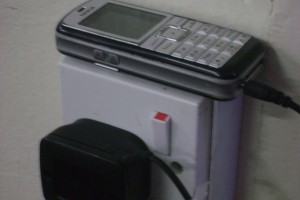Yesterday, the Sentry Group, whose mission is dismantling the financing of Africa’s deadliest conflicts, released a report on corruption in South Sudan. As the fighting in South Sudan has gotten worse, with the leaders unable or unwilling to pursue peace, it’s been an open secret that they have economic links, some of which are in Nairobi, especially in real estate and banking.
Excerpts
Findings & Recommendations
- Even President Kiir and Vice President Machar themselves have acknowledged that corruption is at the core of the country’s current crisis. “An estimated $4 billion are unaccounted for or, simply put, stolen by former and current officials, as well as corrupt individuals with close ties to government officials,” President Kiir wrote in a June 2012 letter to government officials that was leaked to the press.
- Most of the funds that these kleptocrats have amassed appear to come from the oil, mining, foreign exchange, and banking sectors as well as food procurement and defense supply contracts from the government.
- South Sudanese leaders have paid lip service to the need for oversight, but public institutions have been transformed from entities that are supposed to safeguard the rule of law and provide social services into predatory entities that do quite the opposite.
- Top South Sudanese officials and their immediate family members hold stakes in numerous commercial ventures are not actually available to the public…Immediate family members of South Sudanese politically exposed persons – (a.k.a. PEPs) should be required to declare their assets.
- U.S. authorities, as well as their counterparts overseas—in places like Australia, the European Union, Kenya, and Uganda— should open investigations that could lead to the forfeiture of criminally derived assets and to the prosecution of those involved in profiting from corruption in South Sudan.
- Governments should thoroughly examine whether or not banks involved in these transactions fulfilled their due diligence, reporting, and compliance requirements.
- The facilitators and enablers of corruption and mass atrocities should be priority targets for sanctions designations. .. been facilitated—knowingly or not—by a wide range of lawyers, brokers, banks, and foreign companies.
- The U.S. government and U.N. Security Council have already sanctioned a series of mid-level commanders from both sides of the conflict in South Sudan. The failure to follow on these actions with any meaningful scrutiny of higher level targets muted any message these actions may have had, resulting in a perception in South Sudan that the international community is not serious about imposing consequences.
- Kenya and Uganda, in particular, have relatively solid anti-money laundering legal frameworks on paper that can provide a basis for action against corruption, as well as demonstrate that local laws are being violated by banks that process suspicious transactions on behalf of South Sudanese PEPs. These banks should already be conducting enhanced due diligence on South Sudanese PEPs, according to the FATF Recommendations, and taking other measures required to prevent suspicious transactions.

Sanctions on what? Pic by @mankangwafo
Kenya links
- Kenya Commercial Bank processed large payments from multinational companies operating in South Sudan into the accounts of two senior South Sudanese politically exposed persons over a period of several years.
- “Some of these ministers have bought apartments, have bought very beautiful houses, villas,” President Kiir continued. “They are hiding it in Kenya and they refuse to reveal it.” … A source within South Sudan’s government confirmed to The Sentry that the Kiir and Machar homes in Nairobi were close to one another in Lavington
- Violent takeover of KK Security”: One of Machar’s relatives became involved—albeit highly controversially—in KK Security, a Kenya-based company active throughout East and Central Africa.
For KCB, or any other Kenyan banks operating in South Sudan, they are really without blame. The report does not highlight if the transaction with the leaders were in Kenya or in South Sudan where they have 18 branches.
South Sudan is relatively small for Kenya banks, accounting for just 13% of assets outside Kenya (Tanzania is 39%, Uganda is 30%). In the absence of rules from the (regulator) Bank of Southern Sudan, (unlikely) or Kenya’s CBK, or the Kenya government, to freeze doing business with people who probably are in charge of other South Sudan government accounts at the bank, is asking too much.



